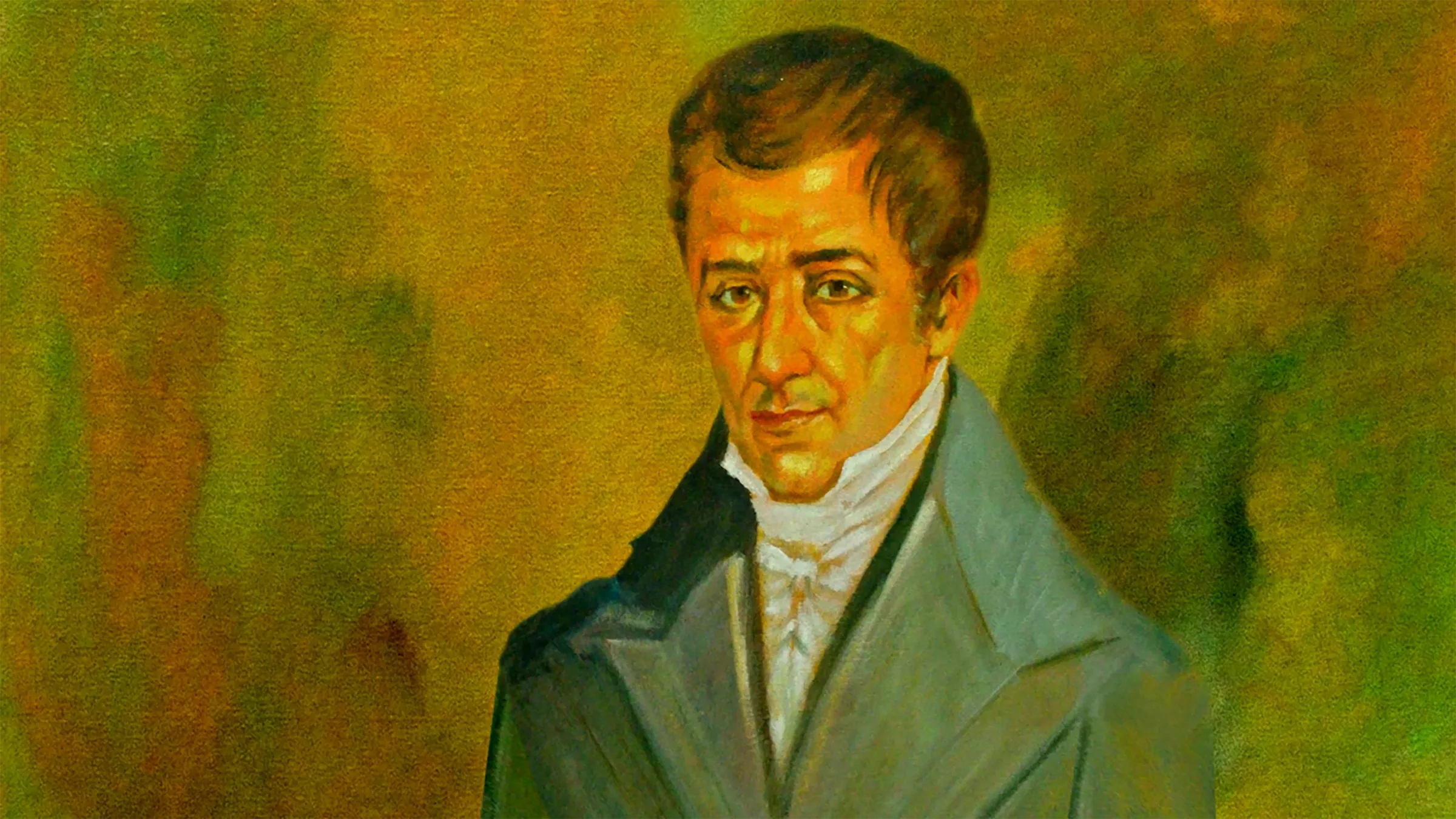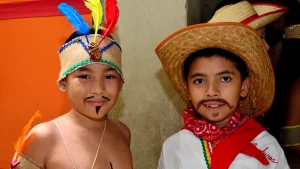Biography of José Cecilio Díaz del Valle

José Cecilio Díaz del Valle (born in Choluteca on November 22, 1780 – died in Guatemala on March 2, 1834). He was a Honduran philosopher, politician, lawyer, and journalist.
He studied at the University of San Carlos de Guatemala, which forged him in the love of science, and which made him tirelessly search and investigate in books, facts and things. His investigative spirit penetrated the stages of knowledge and his powerful intelligence led him to crystallize teaching, thought and science.
He wrote on mathematics, philosophy, geography, history, botany, mineralogy, religion, and law.

Biography
José Cecilio del Valle , a man of moderate ideas, fervently believed in the right of peoples to obtain their freedom and in socio-political changes. But he was convinced that these had to be carried out slowly, as a kind of social evolution. For this reason, when Central America was preparing to declare its independence, Valle thought that it was not the right time to do so and conditioned it under the argument that the vote of the provinces should be heard first.
Once Independence was adopted, Valle became a staunch defender of it. When the intentions of annexing Central America to Mexico arose on the part of the sympathizers of the monarchical style of government, Valle spoke out against it.
In the end, the ‘annexationists triumphed and Valle found it necessary to fight for Central American independence in Mexico. On April 12, 1823, he presented conclusive evidence, showing that the annexation had no juridical, legal or moral basis, for which he asked the Mexican Congress for its annulment.
Back in Guatemala, Valle became a presidential candidate for the conservative party. The Central American people elect him their president, however, this result puzzled the liberals who aspired to dominate the ruler’s mind. They considered it impossible to dominate Valle, since he was a man of vast education, so they appealed to the expedient of falsifying the election calculation. For this, they had the help of conservatives who were not loyal to Valle. «Both entered into agreements, formed a coalition that found the ground with the popular vote, and elected in congress… General Manuel José Arce, President of Central America.»
Valle’s legacy was reflected in a series of articles, speeches and projects in which he identified the evils that plunged the Nation into backwardness, at the same time that he proposed a series of solutions to get out of that situation.
He was optimistic about the potential of Central America, but he knew that to realize that potential, a large investment would have to be made in education and infrastructure, involving all the inhabitants of the region in the national project that he had in mind. Unfortunately, his ideas were never implemented, since in the first years of independent life the country had serious political and economic difficulties that ultimately led to the disintegration of Central America.
Early years and education
José Cecilio del Valle was born on November 22, 1780 in Choluteca, a community located on the banks of the river of the same name, today part of the Republic of Honduras. His parents were Don José Antonio Díaz del Valle and Doña Gertrudis Díaz del Valle, Creoles, of good economic position, and landowners dedicated to agriculture and livestock.
Other close relatives of José del Valle in addition to cattle ranching were engaged in politics. His great-grandfather, José Díaz del Valle, who had more than sixteen thousand head of cattle on his estates, was a major ensign and perpetual ruler of Choluteca, and of Andalusian origin. In his family shield he carried a legend that said «He who is worth the best is not worth as much as Valle is worth.» His cousin Dionisio de Herrera was Head of State of Honduras (1824) and of Nicaragua (1830). Son of Paula Díaz del Valle and Juan Jacinto Herrera y Rivera who was also Lieutenant of the Militias and Mayor of Tegucigalpa.
José Cecilio’s parents, eager to educate their son in the best way and not finding a suitable center in the province of Honduras, moved to Nueva Guatemala, capital of the Kingdom of Guatemala, in 1789. The situation of Guatemala as far as to the moral and literary life it far surpassed that of Honduras.
Even so, teaching was underdeveloped since it was almost paralyzed due to the influence of the institutions of the colony. According to José Milla y Vidaurre, «The daring doctrines that in» Europe «had produced a complete transformation in the moral and political sciences, were hardly known in» Guatemala. This was the situation of the Kingdom, when Valle was learning the first letters. That was until men like: Rayon, Villaurrutia and the Costa Rican, José Antonio Liendo and Goicochea among others, set out to reform the study plan in Guatemala.
At the age of 12, the young Joseph attended the school of the Betlemite brothers for a time and later the Tridentine College in order to learn Latin. After finishing elementary school, José del Valle became a disciple of Goicochea. This opened the door for him, and «cleared the paths that Valle had to travel as a man of science and letters.»
In 1791 he entered the University of San Carlos, where he studied Civil and Canon Law. He graduated from Bachelor of Philosophy in 1794. In 1795 his mother died, which led him to interrupt his studies. In 1803 he obtained the title of lawyer and began to practice his profession immediately.
He continued his studies on Languages, Law, Economics, Natural Sciences, Politics, Finance, History, Geography, and Mathematics. On October 12, 1812, he married Josefa Valero Morales, originally from Comayagua.
Job training
«Because of his faultless conduct, and because of his solid and vast knowledge» of the laws of Castile and the Indies «and in his capacity as a sondalgo although born in America,» Valle had almost the same privilege as the Spaniards. Between 1803 and 1821, Valle was an official of the colonial government. In May 1805, Valle was appointed Interim Deputy of the Government Consolidation Commission, Defender of Pious Works and Censor of «La Gaceta de Guatemala.»
In February 1806 he became Advisor to the Consulate of Guatemala. In March of the following year he was appointed Prosecutor of the Court of the Royal Artillery Corps and Engineers of the Kingdom and in April 1808, Advisor to the Royal Artillery Corps and Engineers of the Kingdom. In 1813, when the Belén Valle conspiracy took place, he held the position of State Prosecutor for the Inmates.
In March 1820, when Fernando VII was forced to restore the Constitution of 1812, elections for legislative and executive representatives were held in Guatemala, at which time Valle was elected Mayor of Guatemala City at the beginning of 1821. serving in this position until May of that year when he was appointed War Auditor.
The legacy of José Cecilio del Valle
Valle’s legacy was reflected in a series of articles, speeches and projects in which he identified the evils that plunged the nation into backwardness, at the same time that he proposed a series of solutions to get out of that situation.
He was optimistic about the potential of Central America, but he knew that to realize that potential, a large investment would have to be made in education and infrastructure, involving all the inhabitants of the region in the national project that he had in mind. Unfortunately, his ideas were never implemented, since in the first years of independent life the country had serious political and economic difficulties that, ultimately, led to the disintegration of Central America.
In addition to its cultural contribution to our country and Latin America, it is incomparable and among which we can mention.
- Drafted the Act of Independence of Central America .
- I founded the newspaper «El amigo de la Patria».
- He was a precursor of Latin Americanism.
- I hold innumerable public positions
- Advisor to the Courts of the 1st Instance of the Artillery and Consulate
- Internal Prosecutor of the Royal Court.
- Elected mayor of Guatemala City in 1820
- Internal Auditor of War of the Captaincy General of Guatemala, 1821.
- Censor of the Gazette.
- Director of the Economic Society 1830
- Professor at the University of San Carlos de Borromeo, Guatemala
- Deputy to Congress 1829, 1831
- Vice-president of the Republic of Central America, 1833
Valle helped the region become part of a confederation with the newly created Mexican Empire of Agustín de Iturbide. Valle represented the province of Tegucigalpa in the Mexican Congress (1822), and became Secretary of Foreign Affairs in the Iturbide government.
The Empire was dissolved in 1823, after which Valle returned to Guatemala, and in 1824 he ran for president of the United Provinces of Central America (Costa Rica, Guatemala, Honduras, Nicaragua, and El Salvador). Although he lacked only one vote to achieve an absolute majority, Congress denied him the position. He won the presidential elections in 1834, but died before taking office.
His last days
Hacienda La Concepcion
«Valle used to do, with his whole family, every year, a season on his hacienda called» La Concepción, «18 leagues from Guatemala. Since the end of December 1833 he remained in this farm, enjoying complete health, «however, on February 1, 1834, Valle began» to experience various physical ailments, although not alarming.
He continued like this for a few days, until the 22nd of the same month, when, at 5 o’clock in the afternoon, he was suddenly attacked by a strong fatigue with boiling chest, a disease of which he had never suffered, and which was of a very serious character because it almost prevented her breathing and could cause suffocation. By force of the caring care of the family, Valle had some relief, but the disease continued.
On March 1, «the family left the hacienda, leading the patient on an arranged stretcher to the capital. In the morning of the same day, the patient felt a slight relief, but at night the sickness of the patient unexpectedly worsened, manifesting in in particular, its severity due to a prolonged delirium.
The delirium passed and a slight calm came; But later, at dawn, a new attack of fatigue struck the patient: Valle was suffocating. The family, with redoubled efforts, managed to calm him down, and they continued their march to the “Corral de Piedra” farm, 12 leagues from the capital of Guatemala. But in the middle of the day, and around 10 am on Sunday, March 2, in the middle of one of the plains on the road, the stretcher stopped: Valle was dying; the disease dealt its last blow ».
Death
On March 2, 1834, «on a deserted, barren, and inhospitable road, where huge clouds of dust rose, and where the sun burned with its rays the humanity of the walkers, surrounded only by his family and the muleteers », Don José Cecilio del Valle passed away.
The sick man had time to ask for the help of the confessor, and said, among other things, to his Chaplain «Father, I know that I am already in the last period of existence, and I need spiritual help to return my soul to the Creator who gives me He gave.»
The clinical picture presented by Don José del Valle before his death is that of a myocardial infarction, complicated by left heart failure in its most serious form, which is acute edema of the lung. This clinical entity manifests itself with predisposing factors that were present in this case, such as type A personality; emotional tension and anxiety; sedentary lifestyle … All this is proof of the coronary disease that ended the life of the Sage Valley, at a relatively early age.
Repercussions
The death of Valle, «the greatest thinker and scholar to date has been born in Central America» was a political event, since «he was elected President of Central America … he obtained the majority of the votes; but fate had decided that he should never be Head of the nation. Death closed its eyes before the sheets were opened. «
Marure consecrates the following paragraph of the ephemeris to Valle: «Central America lost, with the death of José del Valle, one of his most distinguished sons. Known since the time of the Spanish Government for his great talents and extraordinary knowledge; after Independence was proclaimed, he was elevated to the first destinies of the nascent Republic … the following year he attended the Cortes of Mexico, where he victoriously upheld the rights of his country and stood out for his eloquence and diligence. «
Jeremy Bentham and other illustrious writers from Europe honored him with their friendship, and the Paris Academy of Sciences enrolled him in the catalog of its members. The memory of this distinguished Central American was justly honored by his compatriots: the Assembly of Guatemala agreed, on March 13 of the same year, 34. that his portrait be placed in the meeting room, and that in demonstration of feeling for his death, all public officials wore mourning for three days. On the following April 9, the Assembly of El Salvador decreed the same funeral honors to the memory of Valle. «
What’s more
- Hymn to José Cecilio del Valle
- Role of José Cecilio del Valle in independence
- Biography of José on BIO.tv



